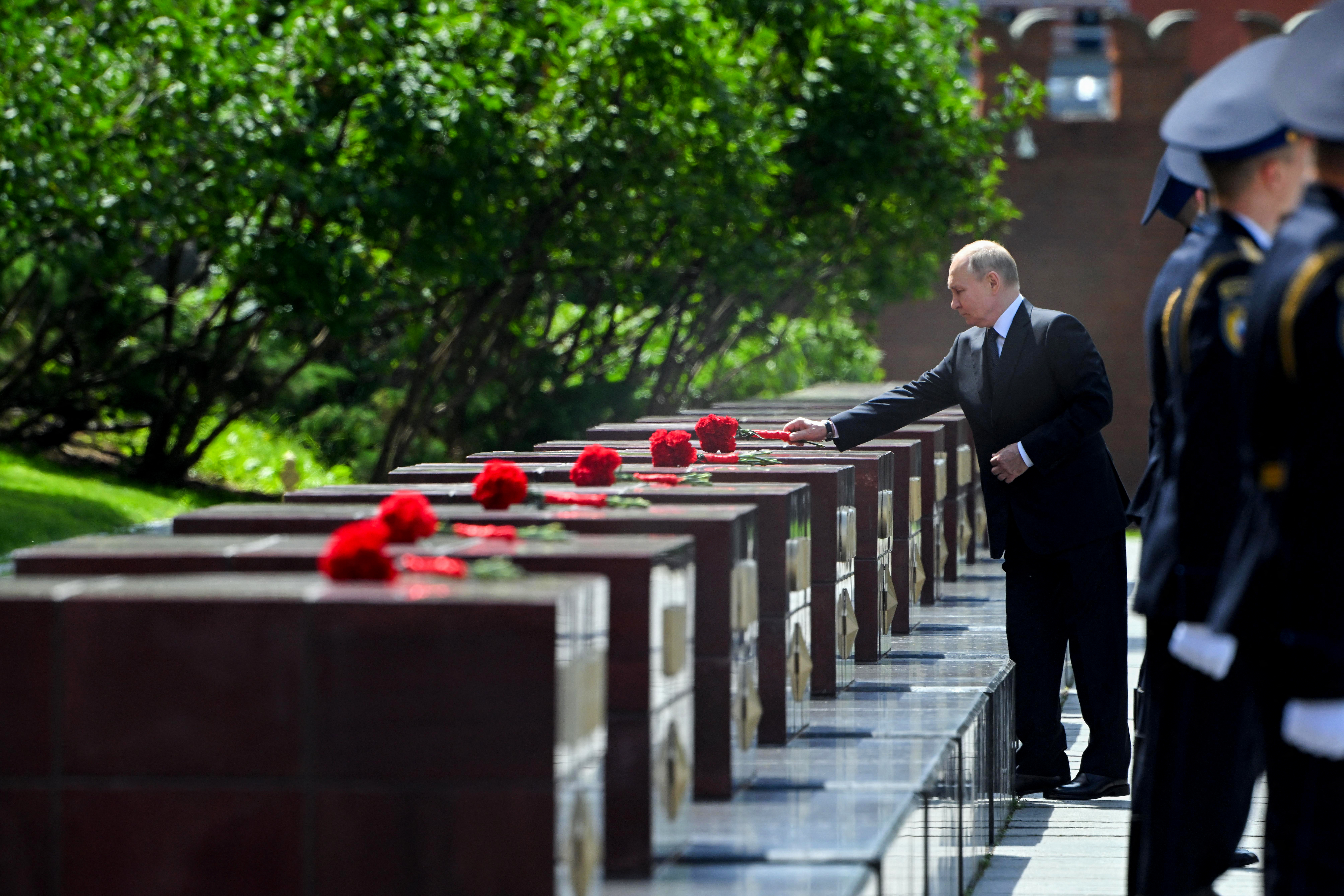Media investigation identifies 66,000 Russian soldiers killed in Ukraine

In this pool photograph distributed by Russian state owned Sputnik agency Russia’s President Vladimir Putin (C) takes part in a wreath-laying ceremony at the Tomb of the Unknown Soldier in the Alexandrovsky Garden near the Kremlin wall in Moscow on June 22, 2024. FILE PHOTO/Agence France-Presse
WARSAW — Independent Russian media outlet Mediazona said Saturday according to its estimates more than 66,000 Russian military personnel have died during the war in Ukraine.
Mediazona has been drawing up a list of known soldier deaths in conjunction with the BBC Russian Service using open-source data.
Previously in April, they announced they had found more than 50,000 names of Russians killed.
READ: Young, poor and from minorities: the Russian troops killed in Ukraine
Mediazona said Saturday that “as of August 30, we know the names of 66,471 Russian soldiers killed in the war”.
Article continues after this advertisementThe list has gone up by more than 4,600 in the last four weeks, it said, while stressing this was not a definitive figure since many soldiers’ deaths are not made public.
Article continues after this advertisementAnastasia Alekseyeva, a journalist at Mediazona, stressed that the latest death numbers were “not linked to Ukraine’s offensive in the Kursk region or Russia’s advance in the east”.
READ: More than 100,000 Russian military casualties in Ukraine, says top US general
This is because researchers are still working through a backlog of death reports, she said.
The report found that 172 conscripts doing national service have been killed in the war, with the highest figures in early months.
However these figures may be inexact since conscripts can sign professional army contracts and some may have done so without telling relatives, Mediazona editor Dmitry Treshchanin said.
According to Mediazona’s breakdown, the region with the largest absolute number of deaths — 2,578 — is the southern republic of Bashkortostan, which has a large Muslim population.
The most represented age group overall was 33-35 (6,877 deaths).
More than 12,000 of the dead were prisoners, after Russia sought to recruit inmates by promising them freedom after a period on the front line.
But numbers have dropped recently, Alekseyeva said: “evidently the recruitment drive is not as active”.
Mediazona and the BBC along with volunteers have been counting deaths since February 2022, using open-source information from official reports and the media, as well as using satellite images of Russian cemeteries to estimate the number of new graves.
Russian President Vladimir Putin said in June that almost 700,0000 Russian soldiers were fighting in Ukraine.
Moscow rarely talks about the losses it has sustained in what it calls a “special military operation”.
The defence ministry in September 2022 said 5,937 soldiers had been killed in combat.
Ukrainian President Volodymyr Zelensky said in February that 31,000 Ukrainian soldiers had been killed in the first two years of the war.